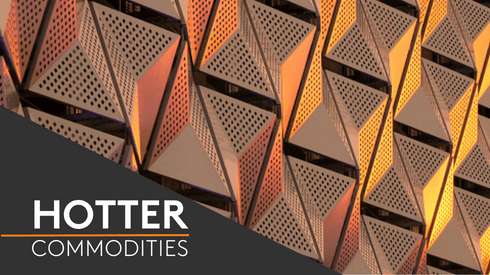Under the proposed thresholds, the maximum content for imports would be 0.4% arsenic, 4.7% lead, 0.06% fluorine, 0.03% cadmium and 0.002% mercury, according to papers seen by Fastmarkets.
Two new elements have been added to import regulations: the combined content of antimony and bismuth cannot be higher than 0.2%, while thallium content is capped at 0.005%.
The proposed standard is largely the same as the first draft of the proposal exclusively reported by Fastmarkets on August 2, except the proposed thallium content, which was initially set at a maximum of 1.2g per tonne.
The paper also poses an additional question on whether industry participants agree to adding a threshold on asbestos content. The acceptable level of asbestos was suggested in the consultation paper.
The consultation period on the proposal is less than a month, requiring a response from various copper smelters by August 31.
China currently allows copper concentrates containing 0.5% or less arsenic to be imported upon inspection by the China Inspection and Quarantine Services (CIQ), according to a set of standards in place since 2006.
The implementation of stricter import standards to China, home to half of the world’s copper smelting capacity, could mean that suppliers will be deterred from selling complex concentrate to the largest consumer in the world.
The China Smelters Purchase Team (CSPT), comprising China’s 10 largest copper smelters, will discuss providing a collective response next week, a smelter source said.
The document is compiled and distributed by a unit under China Non-ferrous Metals Industry Association.
The proposal’s aim is to alleviate pollution arising from copper smelting by forcing the use of cleaner raw materials. But the above Chinese smelter told Fastmarkets the proposal for stricter import rules is unlikely to gain support from the industry.
“No Chinese smelter could agree with the new standards,” a smelter source said.
“It is shocking that they go ahead with a formal consultation, it has faced unanimous opposition from commercial divisions of both smelting and mining companies,’ a mining company source said.
Price effect on ‘clean’ concentrate
If the proposed standards are implemented, “clean” and “super clean” materials required for blending would be priced at a greater premium or at lower treatment and refining charges (TC/RCs) in the market.
Tracking spot terms of standard, clean concentrates, Fastmarkets’ benchmark copper concentrates TC/RC index cif Asia Pacific is currently at its lowest level since the index was launched in 2013. It reflects an unusually tight supply of clean concentrates and smelters’ willingness to accept levels on par with or even lower than the break-even levels.
A stricter import threshold could mean an emergence of demand for blending capacity in regions close to China to blend dirty cargoes with clean feed.
Blending operations within China are limited due to environmental concerns. Only Chinalco is licensed to operate a sizeable onshore blending facility in the bonded zone of Fujian.
Chinalco is also the owner of Toromocho mine in Peru, at times a high-arsenic copper concentrates producer.





